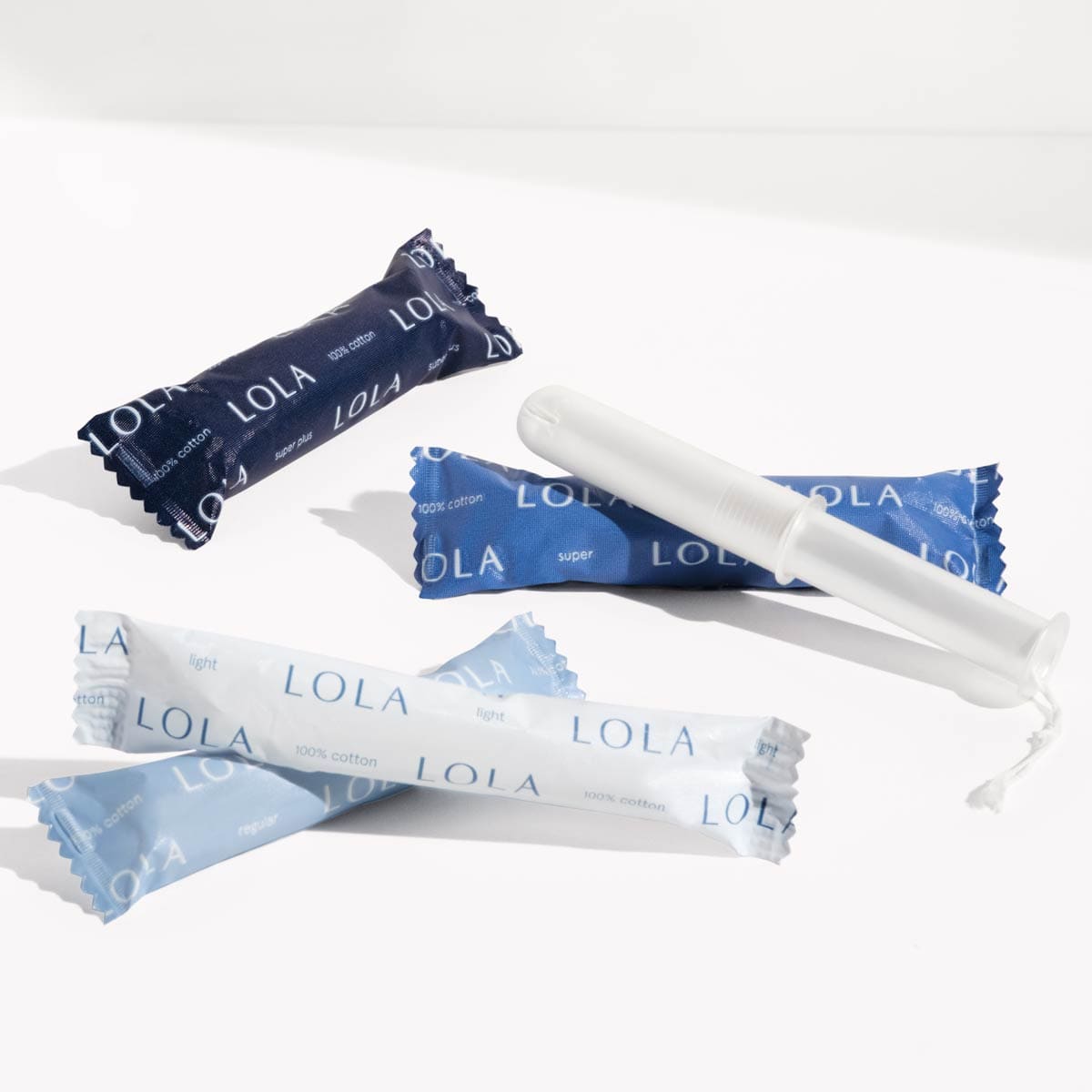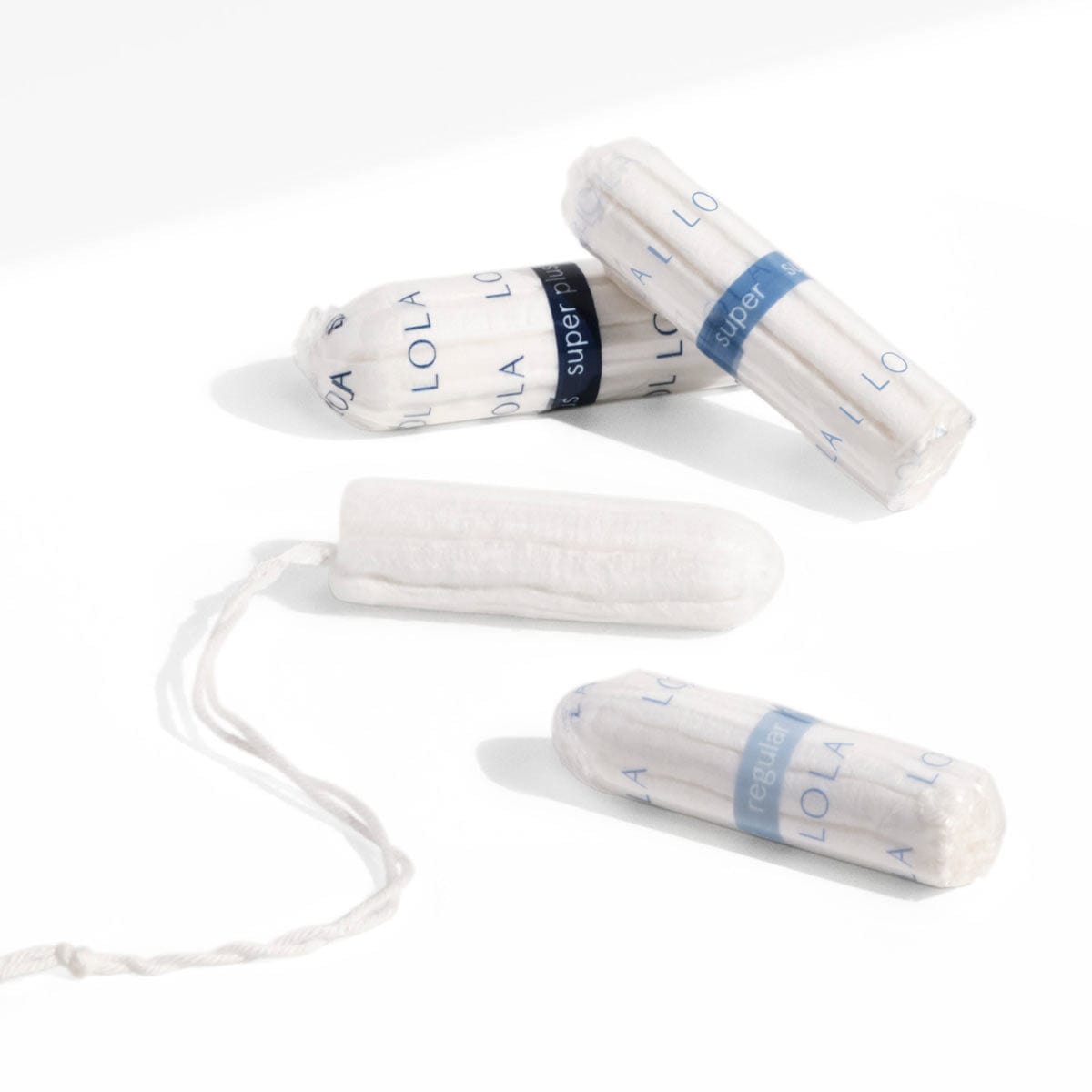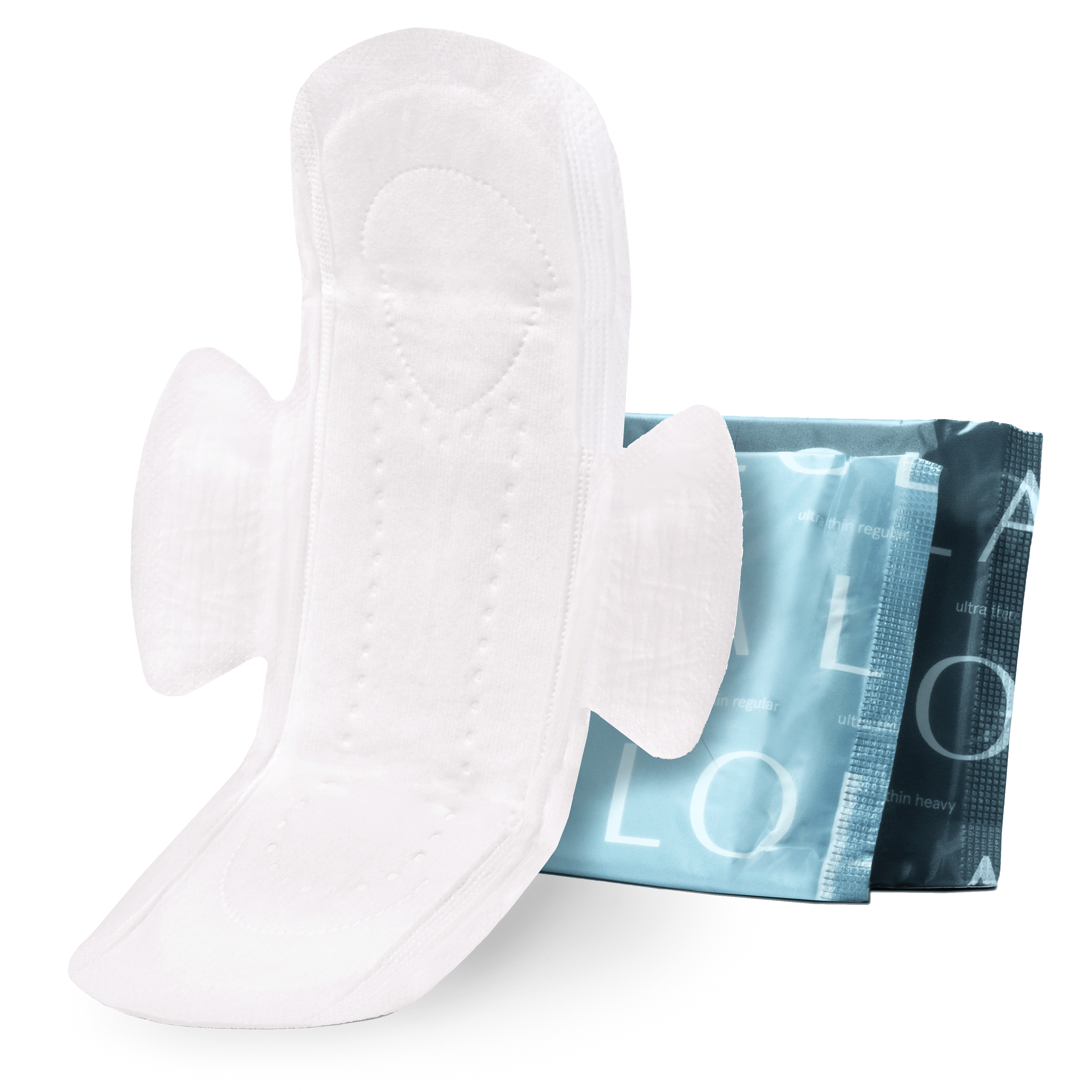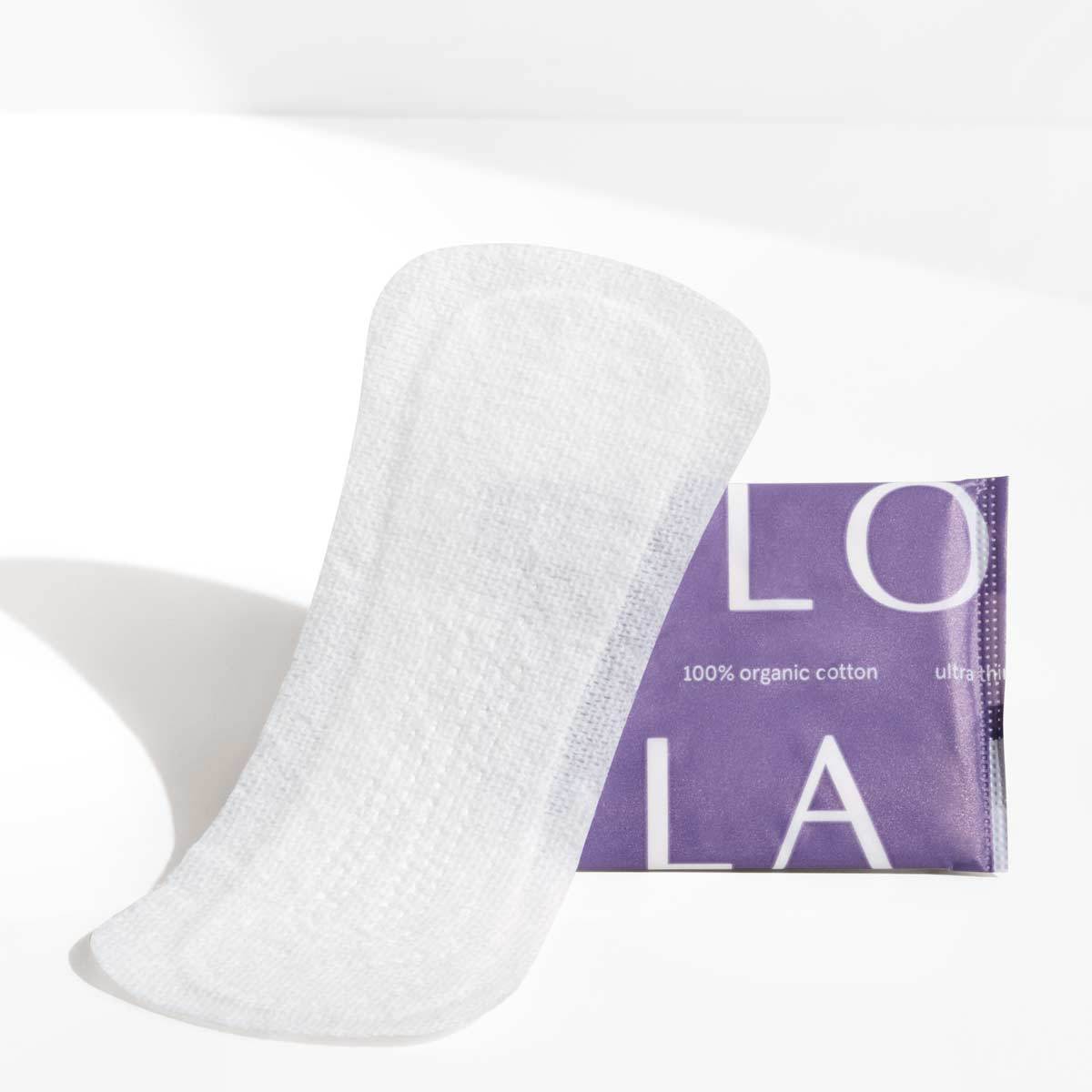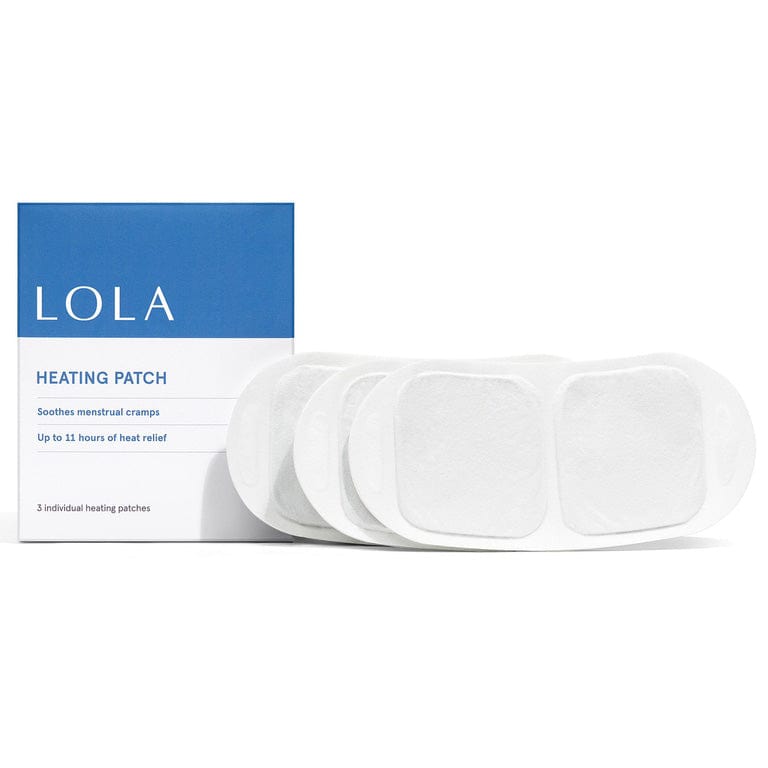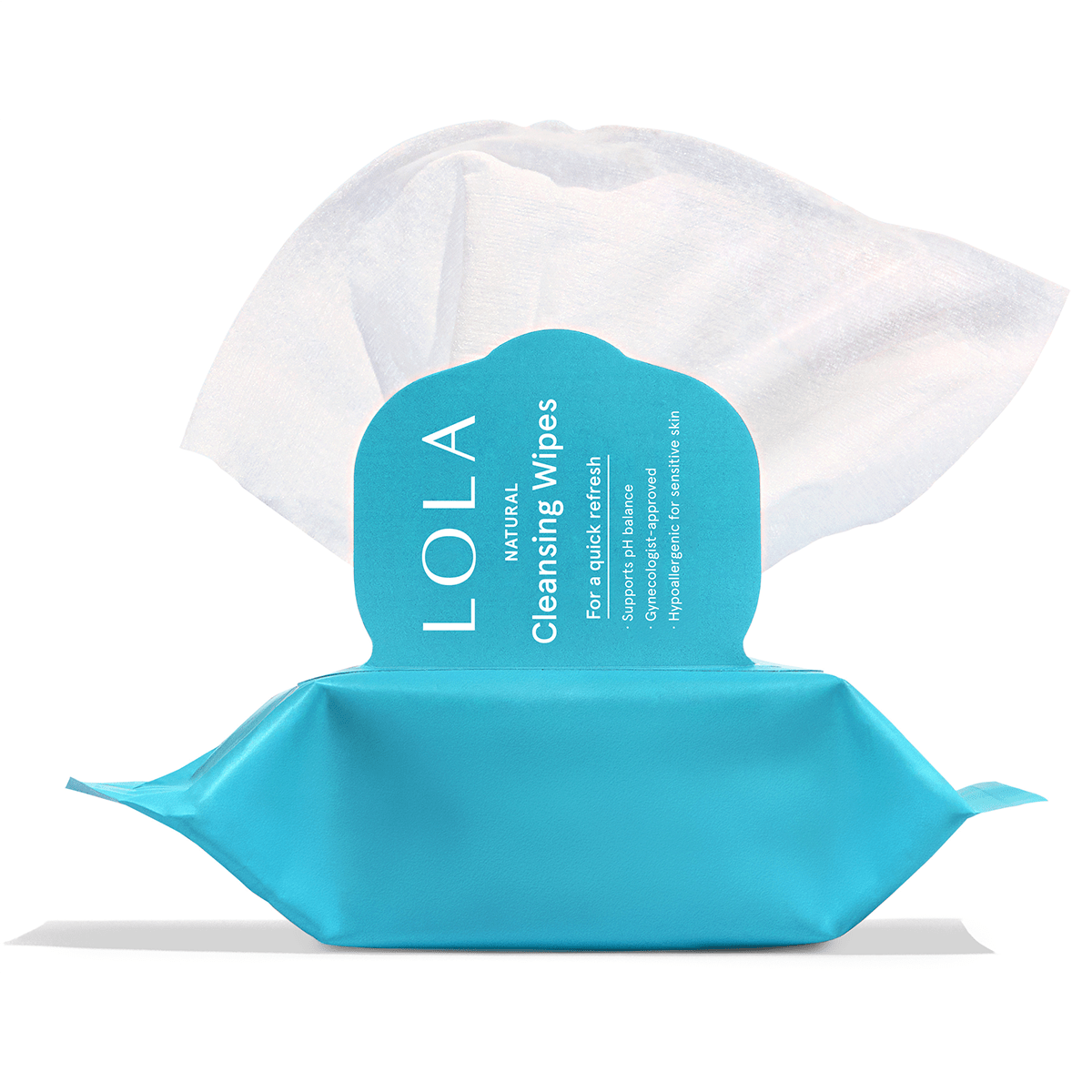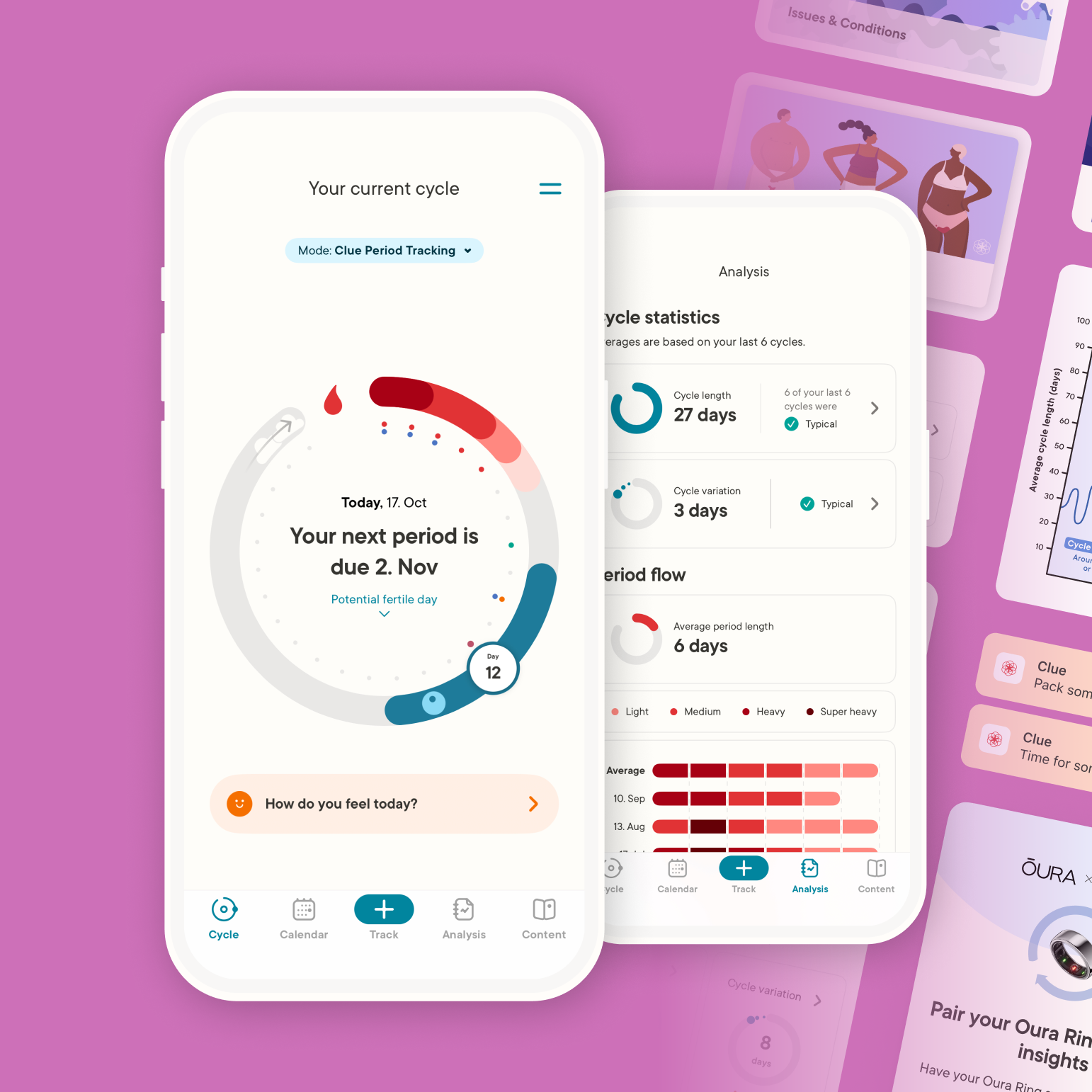Our periods can bring on a slew of not-so-great symptoms, like mental and emotional side effects, monthly jawline breakouts, and painful cramps. Many women also experience digestive issues like heartburn, gas, bloating, diarrhea, and constipation during their period.
On a basic level, your period happens due to fluctuations in hormone levels, which cause the uterus to shed excess lining or tissue. But why does our stomach, a totally different part of the body, seem to go haywire at the same time? We talked to Stefani Davis, a Women's Health Nurse Practitioner (WHNP), to find out.
Is it normal to have indigestion during your period?
Davis reassured us that it's totally normal to struggle with your upset stomach during your period. "Digestive issues during your period are really common," she said. "Helping my patients understand that this is a common complaint among women and being open about the causes helps alleviate anxiety that they may be experiencing something abnormal."
But, Davis warned that those of us with underlying gastrointestinal (GI) issues may be more susceptible to digestive problems during our periods. "Women with irritable bowel syndrome (IBS) or inflammatory bowel disease (IBD) sometimes experience worse symptoms than women who don't have a GI disorder."
What causes indigestion and stomach issues during menstruation?
As it turns out, the chemicals and hormones that trigger our periods are likely responsible for our stomach woes, too. But, as Davis pointed out, it's important to understand that there's actually not a lot of research in this area.
"While the exact science behind why digestive problems surface [during your period] is unknown, it's reasonable to blame the hormones," she said. "The fluctuations, or rises and falls, of estrogen, progesterone, and prostaglandins during your cycle also cause changes in the muscles of the GI tract, which control digestion."
Why period hormones impact your stomach
"Estrogen and progesterone are the two hormones that regulate your menstrual cycle, while prostaglandins are a lipid, or fat, compound that actually act like a hormone in the body," said Davis. "Like estrogen and progesterone, your level of prostaglandins also fluctuates during your period."
There are different types of prostaglandins in the body, one specific to the female reproductive system. The amount of these reproductive prostaglandins fluctuates during your period.
"While it's not known exactly why the GI tract is sensitive to hormonal changes throughout a woman's cycle, it is known that there are sex hormone receptors located along the GI tract," said Davis.
Experts believe the presence of sex hormone receptors in the GI tract is why women experience digestive issues during their period.
"Progesterone is well known for causing constipation during pregnancy by slowing the motility, or the contraction of muscles, of the GI tract, Davis explained. “On the other hand, estrogen tends to enhance GI motility, and can be to blame for diarrhea."
When asked about prostaglandins, Davis said, "Prostaglandins specific to the female reproductive system play a role in the contraction of uterine muscles, which can cause pelvic cramps. Because there are also sex hormone receptors along the GI tract, as there are in the uterus, we think prostaglandins can potentially impact muscles in the GI system, too, which leads to bloating, diarrhea, and constipation."
Common digestive symptoms during your period
Now that we’ve established why you may be experiencing indigestion during your period and that it’s perfectly normal, here are some common related symptoms you may experience:
-
Heartburn
-
Acid reflux
-
Bloating
-
Gas
-
Constipation
-
Diarrhea
-
Nausea
At the start of your period, your body releases prostaglandins to help shed the uterine lining, which may result in cramping and nausea.
During your period, increased progesterone levels relax the lower esophageal sphincter’s (LES) function, which usually keeps stomach acid from rising back up into the esophagus. When the LES is relaxed, stomach acid leaks into the esophagus, resulting in heartburn and acid reflux.
After ovulating, higher progesterone levels slow digestion, leading to bloating, gas, and constipation. Once your period starts, however, progesterone levels drop, which can then result in diarrhea as your system tries to rebalance.
Soothe Period Discomfort Naturally. Try LOLA’s Organic Cramp Remedies.
How to relieve indigestion and bloating during your period
-
Track diet and symptoms in a journal.
-
Avoid common trigger foods like dairy, caffeine, or spicy meals.
-
Try warm compresses or heating pads for cramping and bloating.
-
Use LOLA’s natural heating patches for soothing support.
-
Talk to a provider about hormonal contraceptive options if symptoms are severe.
-
Stay well-hydrated, including ginger and peppermint tea to relieve bloating.
-
Avoid caffeinated drinks to reduce gas.
"Some women may benefit from hormonal contraception, like birth control pills or a hormonal IUD, to help decrease the hormonal fluctuations that contribute to digestive issues," said Davis. For those who may also be struggling with IBD or IBS flare-ups during their period, it's important to get treated for these specific digestive issues by a specialist first.
Davis also recommended keeping a journal: "Write down and keep track of symptoms, diet, and physical activity to determine if certain triggers, like a type of food, worsen symptoms. From there, try to eliminate or avoid those triggers right before and during your period." These may include gassy foods like beans, broccoli, onions, and salty, fatty, and sugary foods. We know, we know, there’s nothing like a tub of ice cream and your favourite rom-com during your period, but these foods are known to trigger inflammation and heartburn.
Also, eat smaller, more frequent meals to avoid overloading your GI system. Drink lots of water, including ginger and peppermint tea, and avoid carbonated drinks to relieve gas and bloating.
A need for more research on PMS and indigestion
Davis emphasized that further research is still needed on this topic to determine the true reason behind what causes digestive issues during women's periods.
“Right now, hormones are the most likely explanation,” Davis said. “Anything you can do to manage their fluctuation during your period is your best bet, whether it's hormonal contraception or taking careful note of what you're eating or doing [and how that affects your symptoms]."
Even if you choose not to pursue these recommended routes, don't forget that there's nothing unusual or unnatural about symptoms like constipation, bloating, and gas during your period. Though period symptoms can sometimes make us feel out of whack, it's completely normal to struggle with digestive issues.
When should you talk to a doctor about period digestive symptoms?
Although digestive issues are normal during your period, there are times when things may not feel quite right. If your symptoms worsen or persist, for example, intense indigestion, bloating, cramping, painful bowel movements, or rectal bleeding, it’s time to talk to your doctor.
Digestive symptoms should subside after your period. If they don’t, there may be a bigger issue at play like Gastroesophageal Reflux Disease (GERD), Irritable Bowel Syndrome (IBS), or endometriosis. You may need hormonal treatments, dietary changes, or additional gut health support in these cases.
Feel better during your period, naturally. Shop LOLA’s heating patches and period care made for sensitive bodies.
FAQs
Is it normal to have indigestion during your period?
Yes, it is completely normal to experience indigestion during your period, and you’re definitely not alone. Many people notice symptoms like bloating, acid reflux, gas, or stomach discomfort right before or during their periods, due to fluctuating progesterone and estrogen levels, increased prostaglandins, and dietary triggers like cravings for salty, fatty, sugary, or spicy foods.
Why do I have digestive issues on my period?
During your period, your body releases prostaglandins, which are chemicals that help your uterus contract and shed its lining. Although they serve a rightful purpose, they can also affect the GI tract, leading to cramping, diarrhea, and nausea.
After ovulation and before your period, progesterone also increases, which can slow down digestion, leading to constipation, bloating, or gas.
What are the symptoms of an unhealthy period?
An "unhealthy period" can show up physically, emotionally, or hormonally. While every person’s cycle is unique, there are certain symptoms that suggest something may be off and worth checking with a doctor.
These include:
-
Severe cramping that interferes with daily life.
-
Heavy bleeding, which soaks through a tampon every one to two hours or lasts more than seven days.
-
Cycles that are shorter than 21 days or longer than 35 days.
-
Very light or spotty periods.
-
Debilitating mood swings or depression.
-
Severe digestive issues, including bloating, diarrhea, nausea, vomiting, or acid reflux.
Why do I get gastritis on my period?
Gastritis, inflammation in the stomach lining, is caused by increased progesterone levels, which relax the muscles in your GI tract, slowing digestion and making your stomach more sensitive to acid during the second half of your period. At the same time, estrogen drops, which usually protects the stomach lining, resulting in irritation.
Reviewed by Stefani Davis, WHNP
